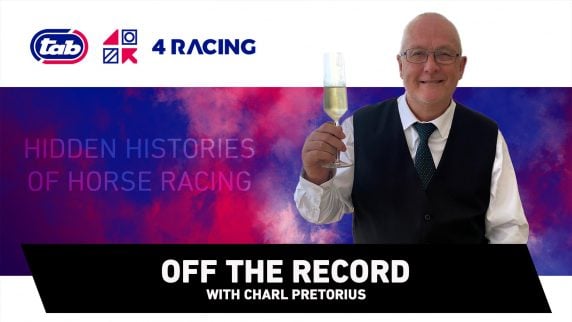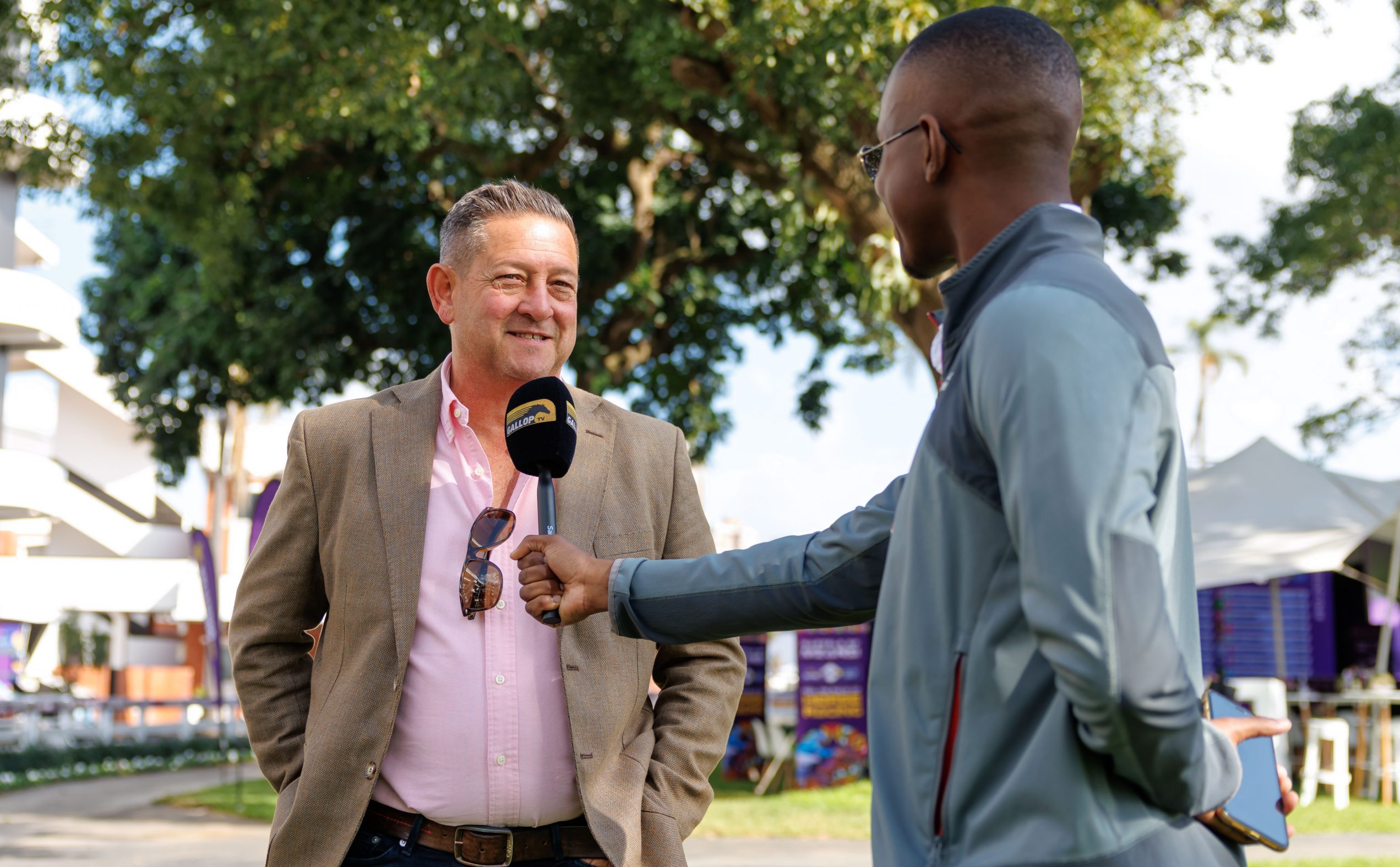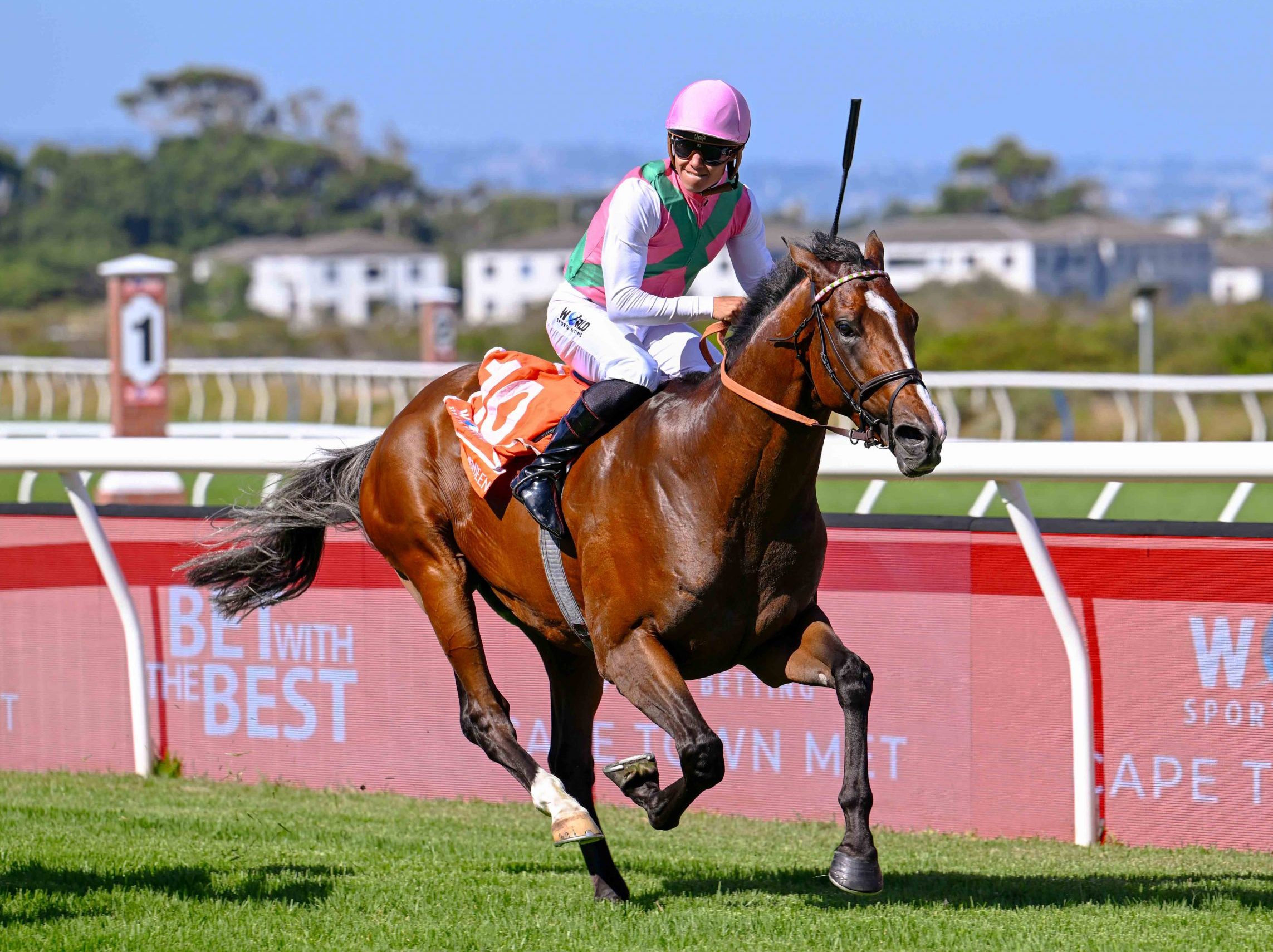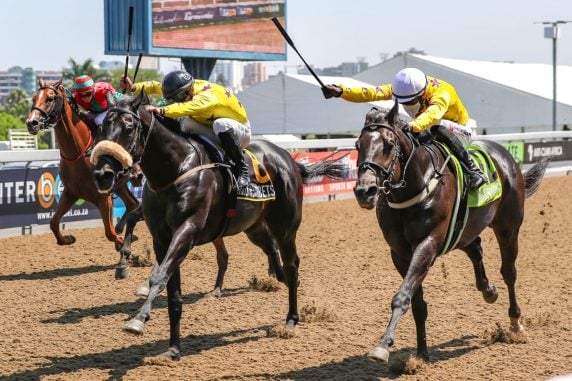The South African Jockey Academy (SAJA) at Summerveld has long been known for producing some of the world’s top jockeys, with a reputation built over decades.
But in recent years, the academy has faced criticism – questions around discipline, a perceived drop in riding standards, and concerns about the direction of its training programme.
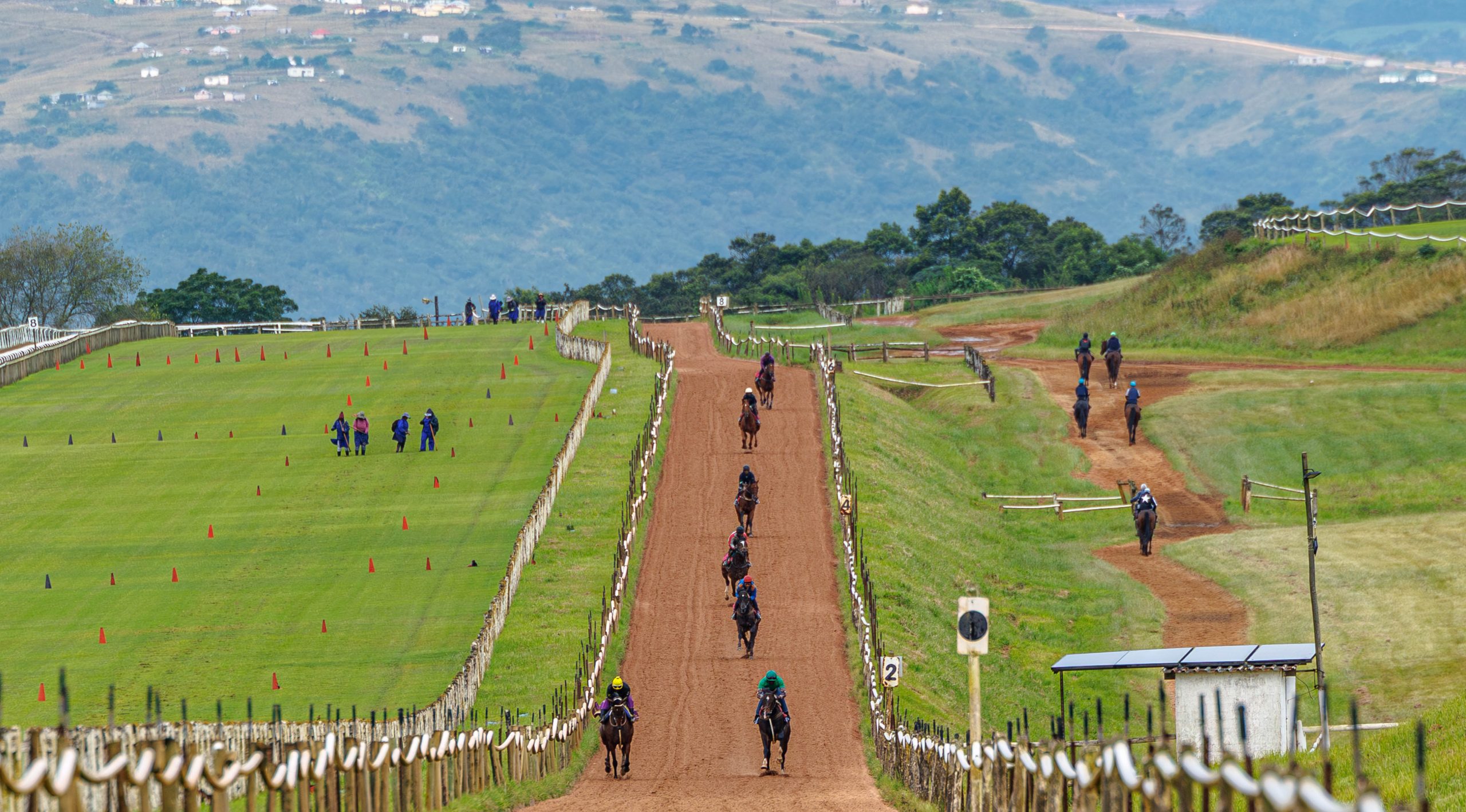
Summerveld – the home of SAJA (Pic – Candiese Lenferna)
After a strategic planning session in December 2024, SAJA introduced new initiatives for 2025, including a stronger focus on mentoring and structured rider development. Early signs are promising.
Accomplished horseman Gavin van Zyl has been appointed as a mentor to apprentices at Summerveld, while others – including the well-versed training veteran, Louis Goosen – have generously shared their time and industry knowledge to help young riders navigate the demands of one of the toughest working environments in the sporting world.
The recent reopening of the Western Cape Academy has added further momentum.
SAJA’s Headmaster, Marius Nel, said that all industry stakeholders contributed to the strategy meeting. “Our main objective is to guide SAJA into the future, considering both the evolving needs of the industry and the pressures of today’s more challenging and socially transparent world, compared to years past, as well as the personal pressures these young men and women face.”
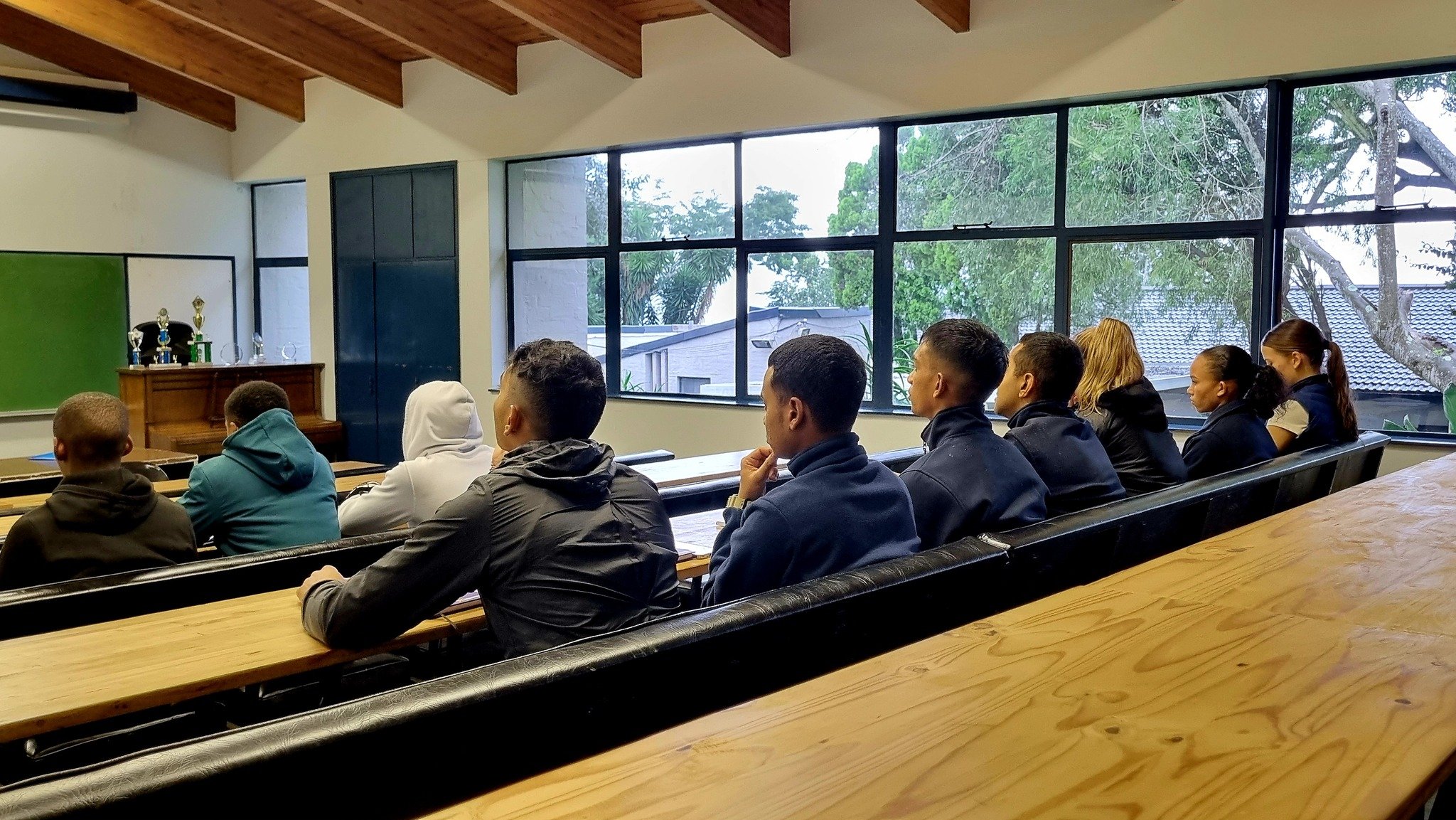
Class in session at SAJA (Pic – SAJA on FB)
Nel explained that SAJA’s academic classes take place after the morning gallops at the Summerveld training centre, from 10h30 to 14h45, during which time standard subjects are taught. As a result, there’s limited opportunity to address the crucial mental and emotional aspects within regular academic hours.
“We brought Gavin van Zyl on board as a mentor because of his comprehensive experience as both a jockey and a trainer. He visits the apprentices twice a week at the Academy and also makes himself available to them at race meetings which, in itself, is support they didn’t have before.”
Van Zyl said he firmly believes that jockeys, as professional sportsmen, require the same level of coaching and support as athletes in other disciplines – such as tennis players.
He said: “We’re all on the same page – the riding masters Robert Moore, Martin Ball, Rocky Agrella, Nicky Roebuck, and myself. Our shared goal is to take race-riding apprentices to the next level.”
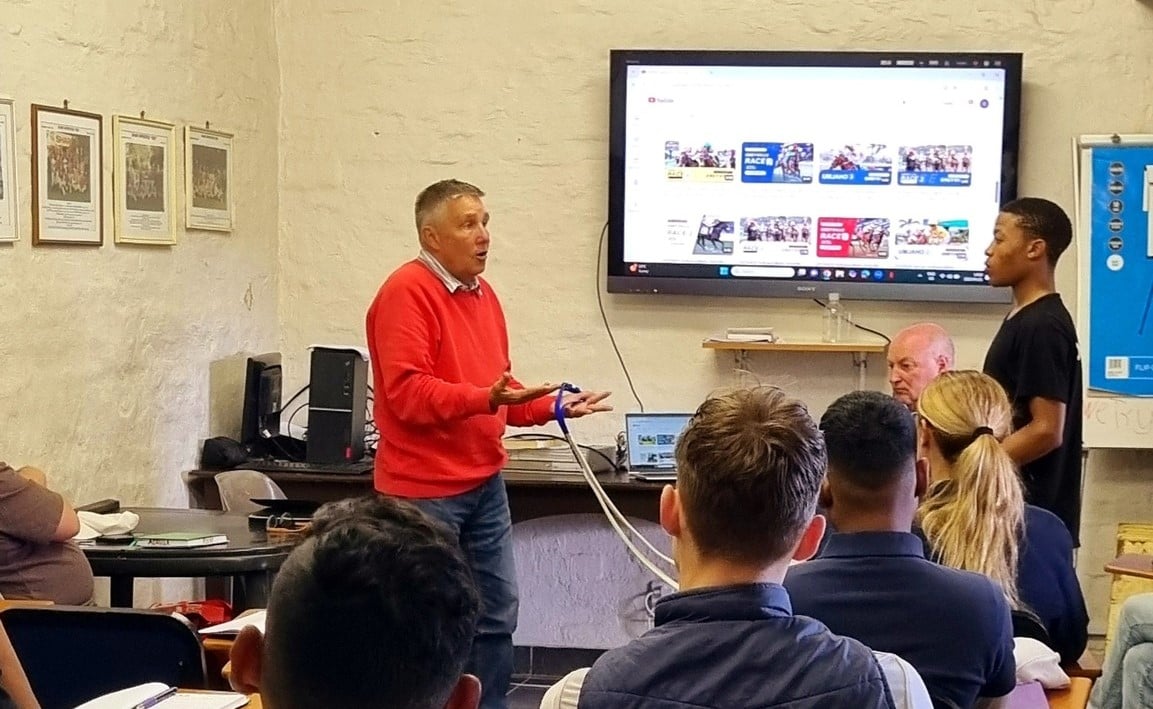
Gavin van Zyl teaching a class on race riding (Pic – SAJA on FB)
In reality, the Academy is responsible for educating a yearly intake of 12 or more young teenage boys and girls, both academically and professionally. “It’s a formidable task,” Van Zyl said. “Doctors study for nine years before they can practise independently. Lawyers take seven or more years to qualify. Meanwhile, we’re working with youngsters – really wet behind the ears – who are expected to ride in their first races after just 18 months of training. It’s a rigorous, demanding process, and they’re thrown into the deep end of a highly competitive sport.”
Van Zyl’s own mentor was the legendary champion jockey Gerald Turner. He also gained valuable insight while training and guiding apprentices who rode for him during his time as a trainer. However, he emphasised that the mentoring he provides today draws on world-class techniques and insights from some of the best jockeys globally.
“I’m not trying to teach them to ride like Gavin van Zyl,” he said. “We cover a broad spectrum – race tactics, positioning, pace judgement, fitness, you name it. We watch race replays, break things down, and interact constantly. It’s a shared process.”
In light of recent disciplinary issues and overly aggressive riding among some senior professionals, Van Zyl offered a candid perspective: “A jockey has to be tough. There’s no room for weakness. When the pens open, you have to hold your own, because no one gives an inch. There’s simply too much at stake. Race riding requires shrewd tactics and real grit. Older jockeys will often try to intimidate younger riders, whether by shouting or by fighting for position. Apprentices must learn to stand their ground. We teach professional respect, that’s essential. But mental toughness is just as important. It’s all about striking the right balance.”


